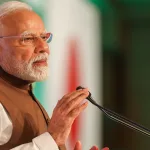In democratic systems around the world, the phenomenon of politicians switching parties is both common and often controversial. While politicians may claim that these moves are motivated by a desire to better serve the public, the reality is usually more complex. Party switching is typically driven by a mix of personal ambition, political survival, opportunism, and strategic calculations. This article delves into the reasons why politicians often change parties, examining the underlying motivations and the broader implications for democratic governance.
Personal Ambition and Political Survival
One of the most compelling reasons why politicians switch parties is personal ambition. The drive to climb the political ladder, gain more influence, or secure a more powerful position can push politicians to abandon their current party if they believe a different one offers better opportunities.
Career Advancement
For many politicians, the pursuit of power and influence is a primary motivator. If they perceive that their current party does not offer a clear path to higher office or greater responsibility, they may seek out a party where they have better prospects for career advancement. This could mean joining a ruling party, where they might be offered a cabinet position or other significant role, or a rising opposition party, where they might see potential for future leadership.
For example, in India, politicians often switch to the party in power, especially at the state level, to secure ministerial positions or other influential roles. This behavior is not unique to India; similar patterns can be seen in many democracies around the world, where political office holders are keenly aware of the benefits that come with being on the winning side.
Electoral Viability
Electoral considerations also play a critical role in party switching. Politicians are acutely aware of their chances of winning elections, and they may switch parties if they believe it will enhance their electoral viability. This often happens when a politician’s current party is struggling or is out of favor with voters.
For instance, in the United States, it’s not uncommon for local and state-level politicians to switch parties based on the changing political landscape in their constituencies. If a region is trending towards one party, politicians might switch allegiance to align with voter sentiment and increase their chances of being re-elected. The calculation is straightforward: aligning with the party that has a stronger base in a particular area can ensure continued political survival.
Discomfort with Party Ideology or Leadership
While personal ambition and electoral viability are significant factors, ideological shifts and discomfort with party leadership can also drive politicians to switch parties.
Ideological Shifts
In some cases, a politician may find that the ideology of their party has shifted in a direction that no longer aligns with their personal beliefs. This is more common in parties that undergo significant ideological changes or realignments. For example, if a traditionally centrist party shifts to the right or left, moderate politicians may feel out of place and choose to join a party that better reflects their values.
A well-known example of this occurred in the United Kingdom, where several Labour Party members defected to form the Social Democratic Party in the early 1980s. These members felt that the Labour Party had moved too far to the left, abandoning the centrist policies they supported. Although such ideologically driven defections are less common than those motivated by ambition or survival, they highlight the importance of personal beliefs in political decision-making.
Leadership Conflicts
Internal conflicts with party leadership are another common reason for party switching. When politicians find themselves at odds with the leaders of their party, whether due to personal disputes, policy disagreements, or factional infighting, they may choose to leave and join a party where they feel they will have more influence or be better appreciated.
Leadership conflicts have led to significant defections in many countries. In Pakistan, for example, numerous politicians have switched parties due to disagreements with party leadership, particularly when they feel their ambitions are being stifled or their contributions are undervalued. In such cases, politicians may see switching parties as a way to escape a toxic or restrictive environment and find a platform that offers greater respect and opportunities.
Opportunism and Political Calculation
Opportunism and strategic calculation are perhaps the most cynical, yet realistic, explanations for why politicians switch parties. The pursuit of power and the desire to remain relevant in an ever-changing political landscape often lead politicians to make decisions that prioritize their own interests over party loyalty or ideological consistency.
Power and Influence
In many cases, politicians switch parties purely to gain access to power and resources. This is especially true in regions where political power is heavily concentrated in the hands of the ruling party. By aligning with the party in power, politicians can secure government contracts, patronage jobs, and other benefits that come with being on the winning side.
This kind of political opportunism is seen in many countries. In Africa, for instance, party switching is rampant, particularly when there are significant changes in government. Politicians often abandon their parties to join the new ruling coalition, ensuring they remain in positions of influence. This behavior undermines the integrity of the political system, as it suggests that loyalty is more to power than to principles or the electorate.
Survival Strategy
Switching parties can also be a strategic move to ensure political survival. In volatile political environments, where parties frequently rise and fall, politicians may switch allegiances to stay relevant and avoid being sidelined. This is particularly common in countries with multi-party systems, where coalitions are fluid, and party loyalty is less rigid.
For example, in Italy, the frequent changes in government have led to a political culture where party switching is relatively common. Politicians who feel that their current party is losing ground may switch to a more viable party to maintain their influence and position. This survival strategy is often criticized for contributing to political instability, as it makes it difficult for parties to build cohesive platforms and maintain consistent policies.
Denial of Mandate and the Role of Personal Interests
A particularly common reason for party switching is when a politician is denied a party ticket or mandate to contest an election. In such cases, the politician may switch to another party that offers them the opportunity to run, driven more by personal interest than public service.
Denied Candidacy
When a politician is denied candidacy, especially in a safe seat or a position they believe they are entitled to, it often leads to party switching. The denial of a mandate can feel like a personal rejection, and for politicians who are deeply invested in their careers, it is a powerful motivator to seek out another platform.
This situation is particularly prevalent in countries with a strong tradition of party loyalty but also intense internal competition, such as in India or Brazil. Politicians denied a ticket by their party may feel they have no choice but to switch to a rival party that promises them a spot on the ballot. This behavior reflects the personal nature of political careers, where individual success often trumps party loyalty.
Feeling Undervalued
Similarly, politicians who feel undervalued or underutilized within their current party often seek recognition and influence elsewhere. If a politician believes they are not receiving the respect or responsibilities they deserve, they may switch to another party that offers better opportunities.
For example, in the United States, local and state-level politicians sometimes switch parties after feeling marginalized within their current political organizations. By joining a party that values their contributions, they hope to enhance their political careers and achieve their ambitions. This tendency underscores the personal nature of political decision-making, where self-interest often drives significant changes in party affiliation.
Loyalty to Power, Not Principles
While some politicians may argue that their decision to switch parties is based on principle or a desire to better serve the public, in many cases, the underlying motivation is loyalty to power rather than ideological consistency. This form of political opportunism is often driven by the desire to remain in power, regardless of the ideological compromises that might be necessary.
Political Opportunism
Political opportunism refers to the practice of pursuing personal gain without regard for principle or ideology. In the context of party switching, it involves aligning with the party most likely to offer benefits such as political office, financial rewards, or influence. This type of behavior is particularly common in systems where party loyalty is weak, and politicians are free to move between parties with relative ease.
In some countries, political opportunism is almost expected. For example, in countries with coalition governments, where power is often shared among multiple parties, politicians frequently switch allegiances to secure positions within the ruling coalition. This behavior undermines the stability of the political system and erodes public trust in politicians who are seen as self-serving rather than committed to serving the public.
Lack of Accountability
In many political systems, there is little accountability for switching parties. Voters may prioritize individual performance over party affiliation, allowing politicians to switch parties without facing significant repercussions. This lack of accountability encourages politicians to prioritize their own interests, knowing that their constituents may overlook party loyalty if they deliver results.
For example, in countries with strong local or regional identities, voters may support a politician regardless of their party affiliation, as long as they believe the politician is effective. This dynamic allows politicians to switch parties with minimal impact on their electoral prospects, further entrenching the practice of party switching as a tool for personal and political gain.
Conclusion
Politicians often change parties for a variety of reasons, most of which are tied to personal ambition, political survival, and opportunism. While they may publicly claim that these moves are motivated by a desire to better serve the public, the reality is often more self-serving. Party switching is a strategic tool used by politicians to enhance their power, influence, and political future, often at the expense of ideological consistency and public trust. Understanding these motivations is crucial for voters and analysts alike, as it sheds light on the underlying dynamics of political behavior and the challenges of fostering a stable, principled political environment. Ultimately, the frequent switching of parties reflects a broader trend in politics where the pursuit of power and self-interest often takes precedence over ideological commitment and public service.
(The author is a Political Activist, Social Activist and a National TV debater. The ideas expressed are his own and can be reached on @[email protected])








